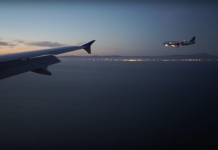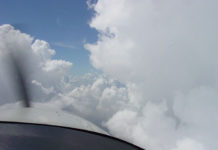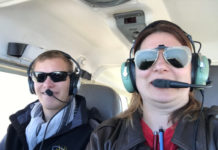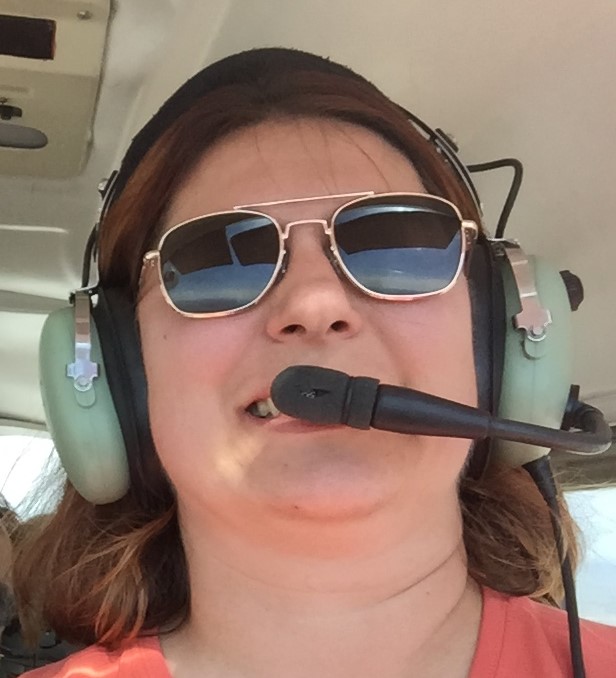Every general aviation pilot, at least once in their flying career, will need a biennial flight review.
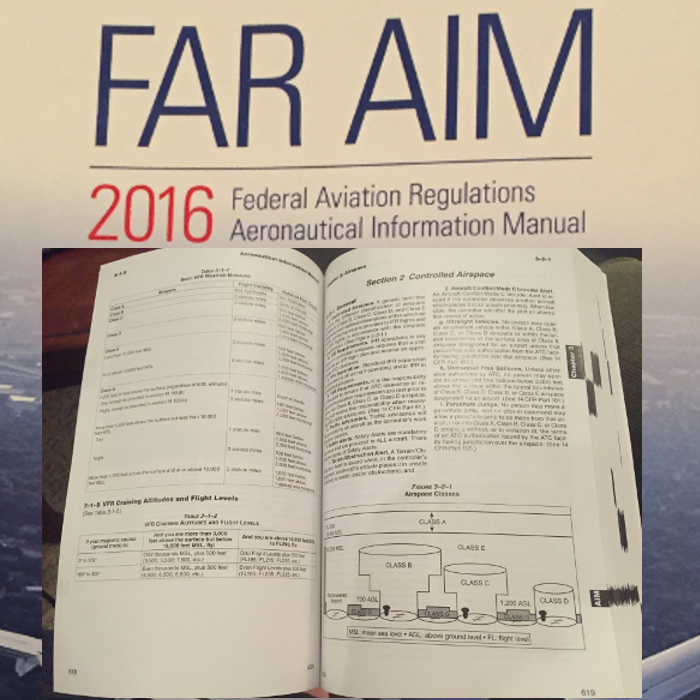
What is the biennial flight review?
Sometimes referred to as a BFR, the flight review is a two year check up on your piloting knowledge and skills. It is designed to make sure that as a GA pilot you still meet the necessary skill level to fly safely.
Technically, it’s called a flight review. The FAA dropped the ‘biennial’ from the phrase due to confusion. Some folks were calling it the biannual, which means twice a year rather than every two years. So, to fix the confusion the word was dropped and now it’s just the flight review.
What it isn’t
It isn’t a method for the FAA to take away your license and it isn’t meant for you to spend more money on flight training if you are flying safely. So it’s nothing you should avoid or be nervous to schedule.
In my flying career I just came up on my first ever flight review so I’ve officially been a licensed pilot for two years now! Yay me.
Not knowing what a flight review consisted of, but knowing I was due for one I did some research before hand to help me get that sign off.
Flight reviews must be conducted by Certified Flight Instructors, or CFIs. ANY CFI can sign you off on your piloting skills but it doesn’t hurt to find one who can teach you a thing or two.
What does a Flight Review consist of?
There are two portions to every flight review. Ground and flight. The FAR states the following about the flight review in section 61.56:
"(a) Except as provided in paragraphs (b) and (f) of this section, a flight review
consists of a minimum of 1 hour of flight training and 1 hour of ground training.
The review must include:
(1) A review of the current general operating and flight rules of Part 91
of this chapter;
and
(2) A review of those maneuvers and procedures that, at the discretion of
the person giving the review, are necessary for the pilot to demonstrate
the safe exercise of the privileges of the pilot certificate"
While the minimum requirement is 1 hour of ground and 1 hour of flight don’t be alarmed if your CFI determines that you need more. It is in your best interest to get all the quality instruction you can during a BFR.
If you’re anything like both me and my instructor the whiteboard is a very useful tool in the ground instruction. Not only for learning new things, but to quickly test knowledge.

With everything I learned/experienced from my recent BFR here are 6 tips that I found helpful in receiving my CFIs endorsement:
Tip 1: Show Up
One of the best ways to pass your BFR is to actually show up for it. It’s due at the end of every 24th calendar month from your last major check ride. Now, there are ways to delay your flight review, such as the WINGS program and other endorsements / check rides but those nuances are not covered in this post.
Schedule your BFR with plenty of time left in your month so you have some wiggle room if needed. I had mine scheduled for the 18th. I planned my day and did a brief check of the weather before I showed up at my FBO.
Tip 2: Answer the Questions honestly
The job of the CFI is to determine how knowledgeable you are in the current regulations. Imagine this as a ground school lesson. A good CFI will ask questions but is willing to teach you those things you may not have a strong grasp in.
For example: My knowledge of all the aviation acronyms is horrible and my memorization of the airspace dimensions is non-existent. Rather than trying to fake my way through the ground portion I was honest with my instructor.
I told him where I would go to find the answers to those questions and that wasn’t always the FAR/AIM. Google is a very viable source to start your search for such things as what the acronym AV1ATES means.
Tip 3: Fly safely
There is nothing that will ruin your flight faster than the CFI thinking you are not a safe pilot. You can make mistakes. You can not be perfect. However, unsafe flying will cause your instructor to require more time with them before they will provide their sign off.
I tend to speak everything I’m thinking so that helps my instructors to know what I’m going to do before I do it, but I have always had safety on my brain. From using the checklists religiously to keeping an eye out for a suitable place to put the plane if needed safe flying is key to your review.
Tip 4: Ask Questions

This is YOUR review. Your CFI is evaluating you, but it is a great time to ask them those burning questions that you have built up over the last two years.
A question from you isn’t going to end your review unfavorably. In fact, it shows your instructor that you are engaged and focused on what you are about to do.
For example: I asked my instructor how critical it is to know the dimensions of airspace. I know the cloud clearances and entry requirements but I’m not top notch on (read I couldn’t begin to tell you at all) the standard dimensions of each airspace.
In my mind, the sectional is the be-all, end-all for dimensions so if I need to know what the shelf height is then I’ll check the sectional.
By asking this question I kept my instructor engaged in the ground as well as learned how he approaches this issue. It’s a giant learning experience and if you don’t ask questions then you are at the mercy of your instructor.
Tip 5: Be willing to work on your weaknesses
Anytime I fly with a flight instructor I have something to learn. Something I can work on to improve my flying, or make a maneuver that much better. This time I found that there are more types of stalls than the two I’ve practiced in training. Each stall has a different name bu the effect is the same, stall horn, buffering then drop. The question is how fast you recover (or do you induce a secondary stall, a type I wasn’t aware of before my review) or what maneuver are you doing to increase your “stall speed”.
I also learned this time around that I have some very serious work to do on the steep turns. They still don’t feel right to me and when I do hold the 45 all the way around I am behind not only the power curve but the back pressure curve too. I guess that’s another good reason to keep flying.
Results
All in all, my instructor thought I was a safe pilot who did what it takes to make sure my flight is successful. Sure, there are things I can tweak but he gave me the sign off because he was confident in my ability to fly the plane. That’s all a pilot wants to hear!
2 Ways to extend the 24 calendar months
There are two methods out there, from what I have seen, to delay the requirement for a flight review. I’m going to work on taking advantage of these in the next 2 years to see how well they work as well as to increase my continuing education.
WINGS program

The FAA safety team has built a great program to give you credit for continual learning. By taking online courses, attending seminars and even flying with your CFI you can earn credit that will push off your flight review. There is even a convenient display to show when your next flight review is due based on your credits.
I will be going more in depth on the WINGS program in another post so stay tuned for that.
Additional Check rides
If you add an additional rating to your piloting resume you reset the clock on the GA flight review. For example, you pass the check ride for your instrument rating the month before your flight review then you reset the clock from the calendar month you passed your check ride.
If you are adding an endorsement to your flying resume, ie high performance, it can reset your flight review counter only if your curriculum includes a flight review. This means that if your CFI does a flight review while you are earning your additional endorsement it can reset the clock, but that isn’t technically a way to reset it if you do a flight review anyways.
So, here’s to the next 2 years of flying, learning and finding out how small the country really is when you can hop in your plane.
Have you gone through a flight review? How many have you had? Do you remember your first flight review? Let me know about your experience in the comments section.
